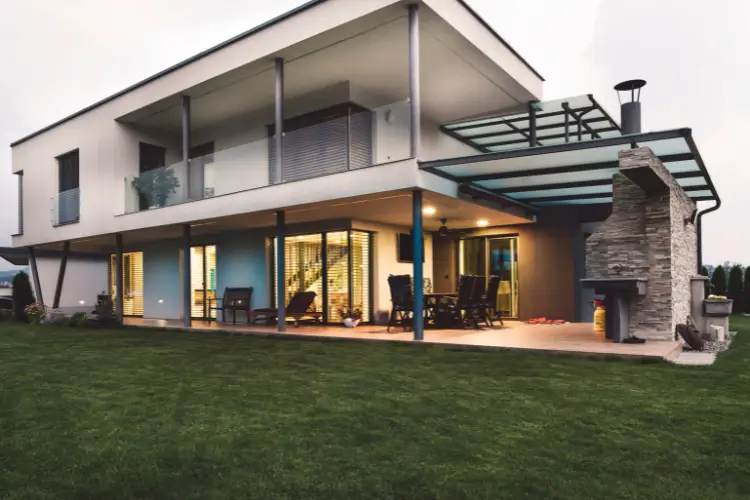Selecting the most appropriate assisted living community for a loved one is a big decision that needs to be thought out carefully. It’s not merely a matter of having a place to stay; it’s a matter of discovering a home that provides the care, support, and comfort necessary as they grow older. With so many choices, it’s bewildering to know where to start. But concentrating on the most important factors, including location, services, quality of staff, and the environment as a whole, can make the process easier. Here’s how to make sure that your loved one receives the best care and support available.
1. Evaluate Care Needs and Services
Step one in selecting the perfect assisted living center is to evaluate your loved one’s unique care needs. All facilities do not provide equal amounts of care, so it is crucial to know what services are needed. For example, if your relative has mobility issues, make sure the community is wheelchair accessible and has proper accommodations. Also, think about medical services, such as medication management, specialized care for diseases like Alzheimer’s, or daily care like bathing and dressing. This makes it important to find a setting that is more than just a place for care. It should provide emotional safety and stability, as they are just as important as the physical services provided, ensuring that the transition is smooth. This ensures that the resident feels truly supported in a calm environment, making the facility seem like a home to recuperate and rest for better health. The proper facility will meet your loved one’s specific needs, making them feel safe and well cared for.
2. Think About the Location
The location of the assisted living facility is important in determining the proper place for your loved one. Ideally, the facility should be in a convenient location that is easy for family members to visit on a regular basis. Being close to doctors, hospitals, and other necessary services is also a good idea. For instance, assisted living options in Stockton, CA, offer a range of choices with local healthcare services, which is an excellent option for families seeking easy access to medical care. Remember that a facility that is close to family members not only provides functional advantages but can also minimize feelings of loneliness for the resident.
3. Visit the Facility in Person
Once you have your top choices, you need to visit the facilities themselves. This is the best way to get an idea of what the atmosphere is like and observe how the staff treats the residents. Some senior living communities tend to resemble a state of art resort, offering upscale amenities and thoughtfully designed spaces that promote comfort and wellness. Go for a tour of the facility and note the cleanliness, safety equipment, and amenities available. Meet with the staff and discuss your loved one’s individual needs and how responsive they are. It’s also a good idea to talk with existing residents and their families to obtain an open-minded view of the quality of care and overall environment of the community.
4. Assess Staff Qualifications and Training
Staff quality is perhaps the most significant consideration in selecting an assisted living facility. Make sure the staff is highly trained, caring, and skilled in delivering the level of care your loved one requires. Inquire about the training of the caregivers and how emergencies are dealt with. It is also crucial to know the ratio of staff to residents since a greater number of staff means that every resident gets more attention. A well-trained and caring staff facility can make a huge difference in the quality of staying there.
5. Seek Social and Recreational Activities
A quality assisted living facility provides more than medical attention and daily care. Social interaction and recreational activities are essential to a senior’s health. Most facilities provide a range of activities, including exercise classes, arts and crafts, games, and outings. These activities not only keep the residents active but also enable them to form friendships and maintain a sense of purpose. When selecting a facility, inquire what social activities are provided and if they match your loved one’s interests and tastes. For those looking for options, Senior care homes near Minneapolis (or elsewhere) often offer diverse programs tailored to residents’ interests and hobbies.
6. Know the Costs and Payment Options
Before making a final choice, it’s important to know the costs involved in each facility. Prices for assisted living are different depending on where it is located, the services included, and the type of accommodations being offered. Some communities provide bundled pricing, while others have extra fees for additional services. It’s also essential to review the pricing structure of the facility carefully to ensure it is within your budget. Further, consider payment options, such as private insurance, long-term care insurance, and government assistance programs, to understand how costs can be managed.
Conclusion
Selecting the proper assisted living facility for your loved one is a decision that must be thought through and planned carefully. By looking at issues like care requirements, location, quality of staff, activities, and expenses, you can make a well-informed decision that guarantees your loved one gets the best care available. Spending time visiting possible facilities and talking to staff and residents will provide you with a clear understanding of the setting and the quality of care offered. With proper research and preparation, you can identify a community that provides comfort, security, and support for your loved one’s future.




